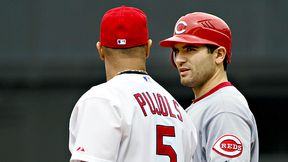- 1,917
- 10
- Joined
- Jan 22, 2007
Originally Posted by Osh Kosh Bosh
While negotiating against nobody they managed to give this insane extension, the price of premium bats is spiraling out of control.
Its getting ridiculous. Cain got way overpaid he's not even a career .500 pitcher good stuff but not proven.


